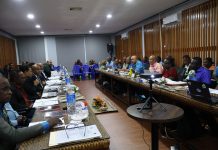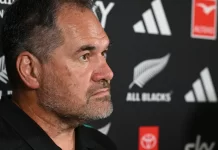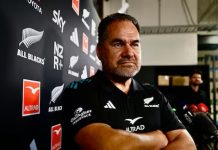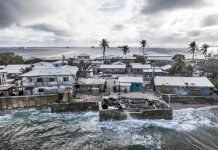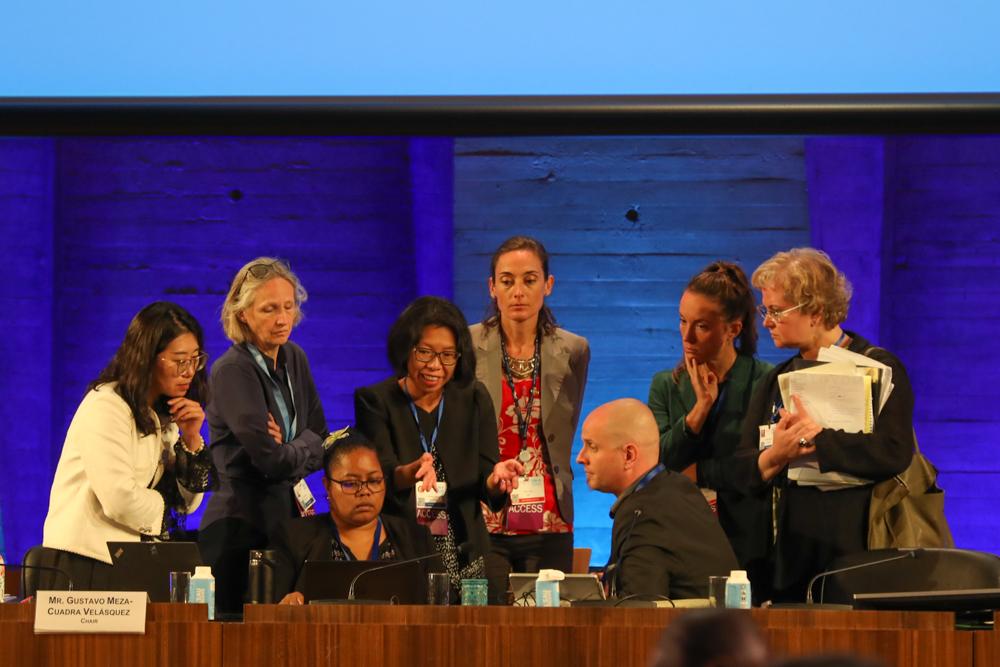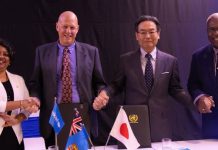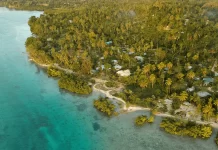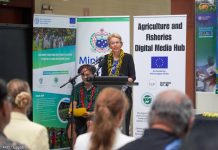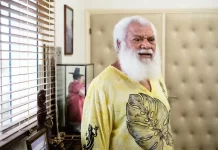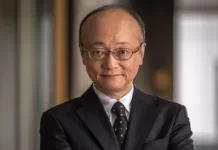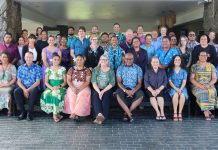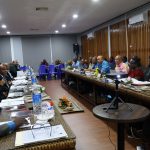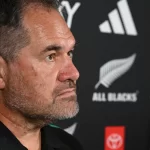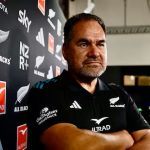The global community is one step closer towards a legally binding instrument on plastic pollution, including in the marine environment, with the second session of the Intergovernmental Negotiating Committee (INC-2) in the romantic city of Paris concluding with a mandate for the INC Chair to prepare a zero draft of the agreement.
A zero draft is referred to as the first attempt to assemble thoughts or ideas related to a proposed agreement, or a research topic. The mandate was announced by the Chair of the INC, Gustavo Adolfo Meza-Cuadra Velasquez, to thunderous applause from close to 2,000 delegates from more than 190 countries who attended INC-2, hosted by France at the UNESCO Headquarters from 29 May to 2 June 2023.
The Executive Director of the UN Environment Programme (UNEP), Inger Andersen, who championed the plight of Pacific countries at the forefront of the plastic crisis during the opening of the meeting, welcomed the announcement.
“I am encouraged by progress at INC-2 and the mandate to prepare a zero draft of the international legally binding instrument on plastic pollution,” she said. “I look forward to INC-3 in Nairobi, and urge Member States to maintain this momentum. The world is calling for an agreement that is broad, innovative, inclusive and transparent, one that leans on science and learns from stakeholders, and one that ensures support for developing nations.”
The voice of representatives from 12 Pacific island countries who advocated for their national priorities, and those of 14 Pacific Small Island Developing States (PSIDS) as a collective, was heard loud and clear, even when the going got tough. The zero draft is the latest step in a journey dating back to the resumed fifth session of the United Nations Environment Assembly (UNEA-5.2) in Nairobi where the historic resolution to develop a legally binding instrument on plastics was adopted.
The Chair of Pacific Small Island Developing States (PSIDS), and Palau’s Permanent Representative to the United Nations, Ilana Seid welcomed the announcement of the zero draft and applauded the Pacific’s advocacy work on the global stage.
“The Pacific has done a tremendous job,” said the PSIDS chair. “I’m very proud of our team. Plastic pollution is one of the major concerns for our region, especially for the Pacific small Island states. We came and we made it known that this is a problem that needs to be addressed for the world and specifically for the marine environment, which is littered with a lot of legacy plastics.
“Our team has done a fantastic job and I commend everyone, including the CROP agencies and our expert advisors. Teamwork makes the dream work.”
Ambassador Seid, however, is under no illusion that a lot more work remains to be done.
“I’m optimistic but it’s not over yet. We now know based on the interventions from a lot of member states where the disparities lie. We’ll have to get a lot more experts involved to help inform our policy decisions and our positions. Now that we’ve had the read of the room and we know how things are shaping up, we go and we find people to help us try to shape those conversations.”
Thanks to support from the Government of Australia and the United Nations, delegations from the Cook Islands, Federated States of Micronesia, Fiji, Kiribati, Nauru, Niue, Palau, Papua New Guinea, Samoa, Solomon Islands, Tuvalu and Vanuatu were able make their voice known. They were supported by the Secretariat of the Pacific Regional Environment Programme (SPREP), as the mandated inter-governmental organisation of Pacific island countries to protect the Pacific environment. SPREP assisted the delegates and the Chair of PSIDS to coordinate our One Pacific Voice advocating for a treaty that reflects the reality in Pacific countries.
Amplifying the One Pacific voice in and outside the negotiations space was a key part of the support.
The Director of Waste Management and Pollution Control, Anthony Talouli, said SPREP looks forward to the continuation of the work to develop a plastics treaty.
“SPREP continues to work according to the mandate given to us by our 26 member states, including 21 Pacific Small Island Developing States, 14 of whom are parties to the INC process. That mandate is to promote cooperation in the Pacific region and provide assistance in order to protect and improve its environment and to ensure sustainable development for present and future generations,” said Talouli. “I want to thank our all our Pacific delegations, the Government of Australia, UNEP, the PSIDS Chair as well as the Alliance of Small Island States (AOSIS) Chair Samoa for the work done so far. But this is just the beginning and we have a lot more work to get through to reach our end goal of a treaty to eliminate plastic pollution.”
Humanity produces over 430 million tonnes of plastic annually, two-thirds of which are short-lived products that soon become waste. Despite contributing 1.3% to global plastic pollution, Pacific communities are at the forefront of the impacts of the escalating crisis.
“Plastic has been the default option in design for too long,” Andersen said. “It is time to redesign products to use less plastic, particularly unnecessary and problematic plastics, to redesign product packaging and shipping to use less plastic, to redesign systems and products for reuse and recyclability and to redesign the broader system for justice.”
The third INC session, INC-3, is scheduled to take place in Nairobi, Kenya, in November 2023. The Secretariat will invite submissions from observers by 15 August and Members by 15 September on elements not discussed at INC-2, such as the principles and scope of the instrument, and any potential areas for intersessional work compiled by the co-facilitators of the two contact groups, to inform the work of INC-3.
The second Intergovernmental negotiating committee to develop an international legally binding instrument on plastic pollution, including in the marine environment is taking place in Paris France from 29 May to 02 June 2023.
The Pacific Islands are represented by the Cook Islands, Federated States of Micronesia, Fiji, Kiribati, Nauru, Niue, Palau, Papua New Guinea, Samoa, Solomon Islands, Tuvalu and Vanuatu through the support of the Government of Australia and the United Nations.
They are supported by the Secretariat of the Pacific Regional Environment Programme (SPREP), working with partners the Pacific Islands Forum Secretariat, Office of the Pacific Ocean Commissioner, Environmental Investigation Agency, Centre for International Environmental Law, University of Wollongong, WWF and Massey University.
SOURCE: SPREP/PACNEWS


